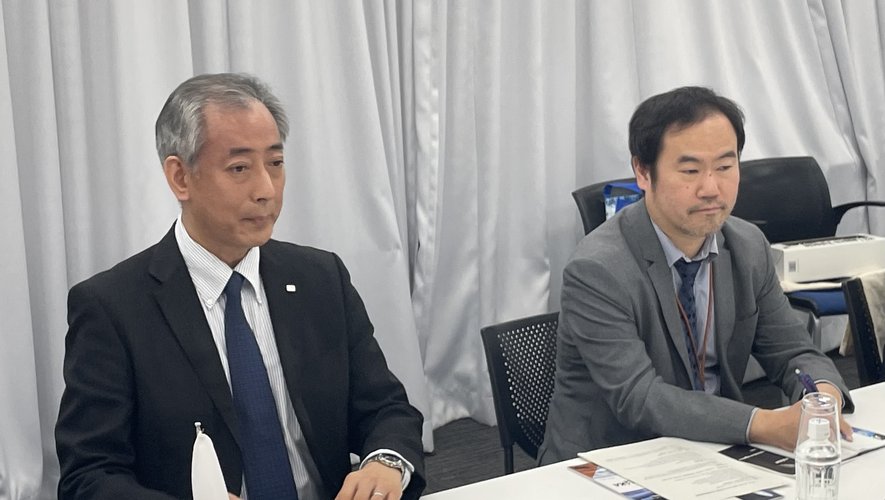The gist: The President of the Japanese Space Agency (Jaxa), Hiroshi Yamakawa, received in Tokyo this Wednesday, March 6, the President of the Occitanie Region, Carole Delga, just a few weeks after registering a great success since Japan recently launched the became the fifth lunar nation.
The President of the Occitania Region is currently visiting Japan and, after the inauguration of the France pavilion at the Food and Drinks Fair in Tokyo this Tuesday, March 5, the premises of the Japanese start-up Astroscale and then the Japanese aerospace agency Jaxa . The opportunity to discuss with its President Hiroshi Yamakawa.
On January 20, Japan became the fifth nation to land on the moon. The SLIM probe successfully landed on the surface of the Earth's satellite – a real symbol…
Hiroshi Yamakawa: Japan is one of the most developed countries in terms of space technology, and what we have just achieved with SLIM (Smart Lander for Investigating Moon) demonstrates this perfectly. We managed to place a machine on the Moon with an unprecedented precision (55 meters from the original target, compared to several kilometers generally for this type of mission, editor's note).
Also read:
Space: Why is it so complicated to return to the moon 55 years later?
This great success for us requires others. It allows us to increase our credibility on the international stage. Especially with regard to our know-how in robotics. But also on all questions relating to autonomy, navigation and control systems.
What's next for your agency after this premiere?
With Jaxa, we are involved in the Artemis program together with the USA, Canada and of course Europe to create a stable and permanent basis for life on the moon. Of course, we want to involve all of our partners more closely.
Also read:
INTERVIEW. Thomas Pesquet: “Flying to the moon is the ultimate goal”
Is Mars the dream, the goal?
For everyone, yes. We are preparing for our part with MMX (Martian Moons eXploration), collaborating with France and Germany, as a small rover (called Idefix) will be taken on board our mission to fly to one of Mars' moons, Phobos*. We hope to learn more about the origins of this planet and, more generally, the solar system.
Also read:
VIDEO. Toulouse is the last stop of the IDEFIX® rover, which will explore a moon of Mars

The President of the Occitanie Region, Carole Delga, here during the meeting with the President of the Japanese Aerospace Agency Jaxa this Wednesday, March 6, in Tokyo. DDM – Valentin Marcinkowski
“Space concerns all of us on the surface of the earth”
They explained to the President of the Occitanie Region that aerospace has become a priority for the Japanese government in recent years. For what ?
Japan started its space programs in 1955. We have accumulated quite a bit of technological know-how. However, nowadays space is no longer intended for research purposes as our daily lives are heavily influenced by space activities. This is also very important from a national security perspective. Space affects all of us on the surface of the Earth. The government strongly supports Jaxa (planned budget of around 1.44 billion euros for 2024), as the technologies used by the agency can be used in many areas.
Also read:
Russia: show of force, space race, exploitation of resources… Why are the Russians sending a rover to the moon?
In this context, the synergies developed with Toulouse Aerospace are therefore important…
Toulouse, I have been there several times and it is an important location for aerospace. There are many companies that are there. Japan and the Occitanie region have a common interest in ever closer rapprochement, although the National Center for Space Studies (CNES), it must be emphasized, has been an important partner for us for around thirty years. In aerospace, no country can achieve convincing results alone. All major projects are based on international cooperation. Therefore, for our Franco-Japanese relations to be sustainable, there is an interest in merging our different start-up ecosystems (such as Astroscale) to achieve greater efficiency in the future.
* Launch is scheduled for 2026 to explore two Mars satellites: Deimos and Phobos. Samples are to be taken from the latter for a return to Earth planned for 2031.

